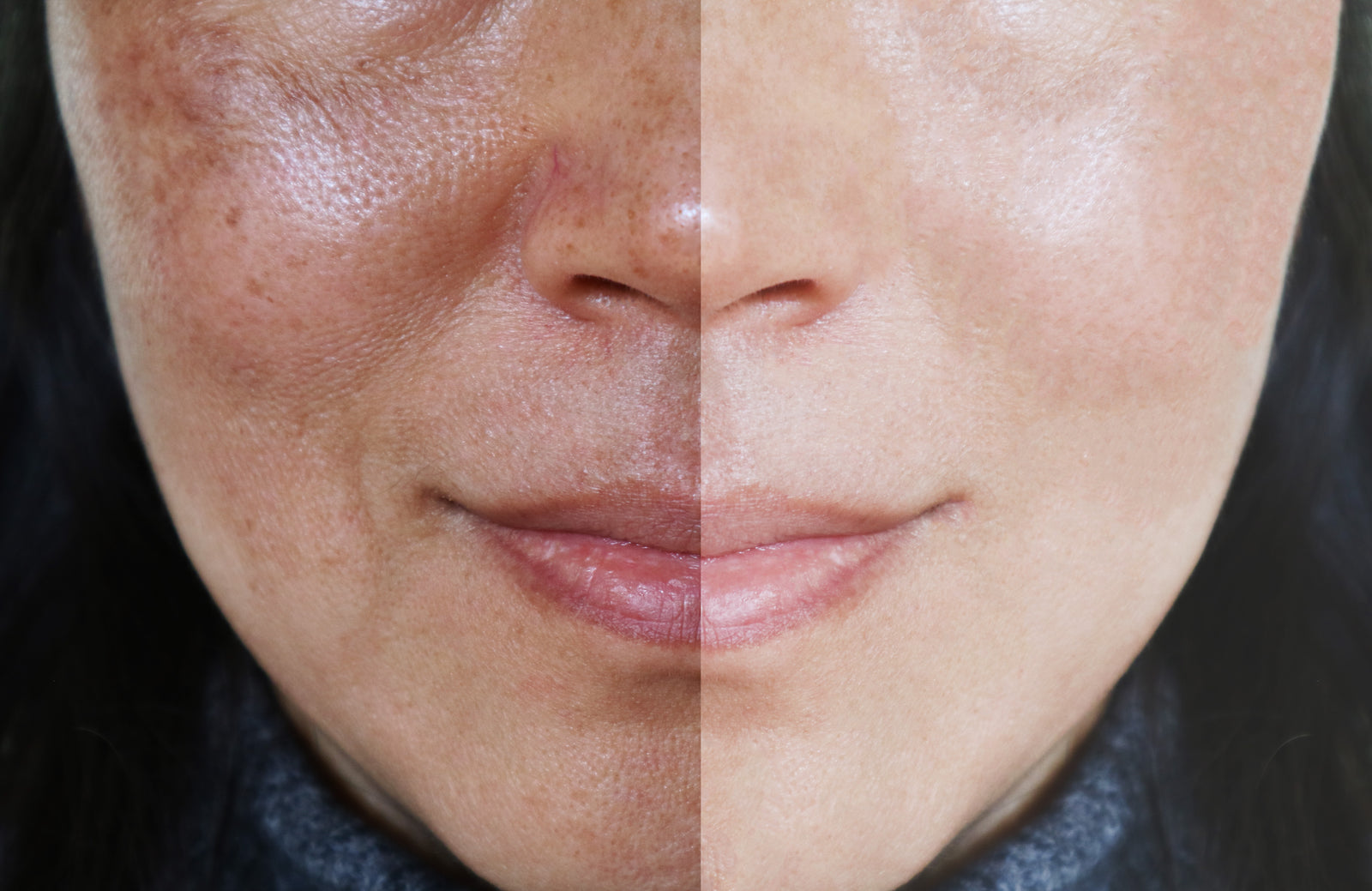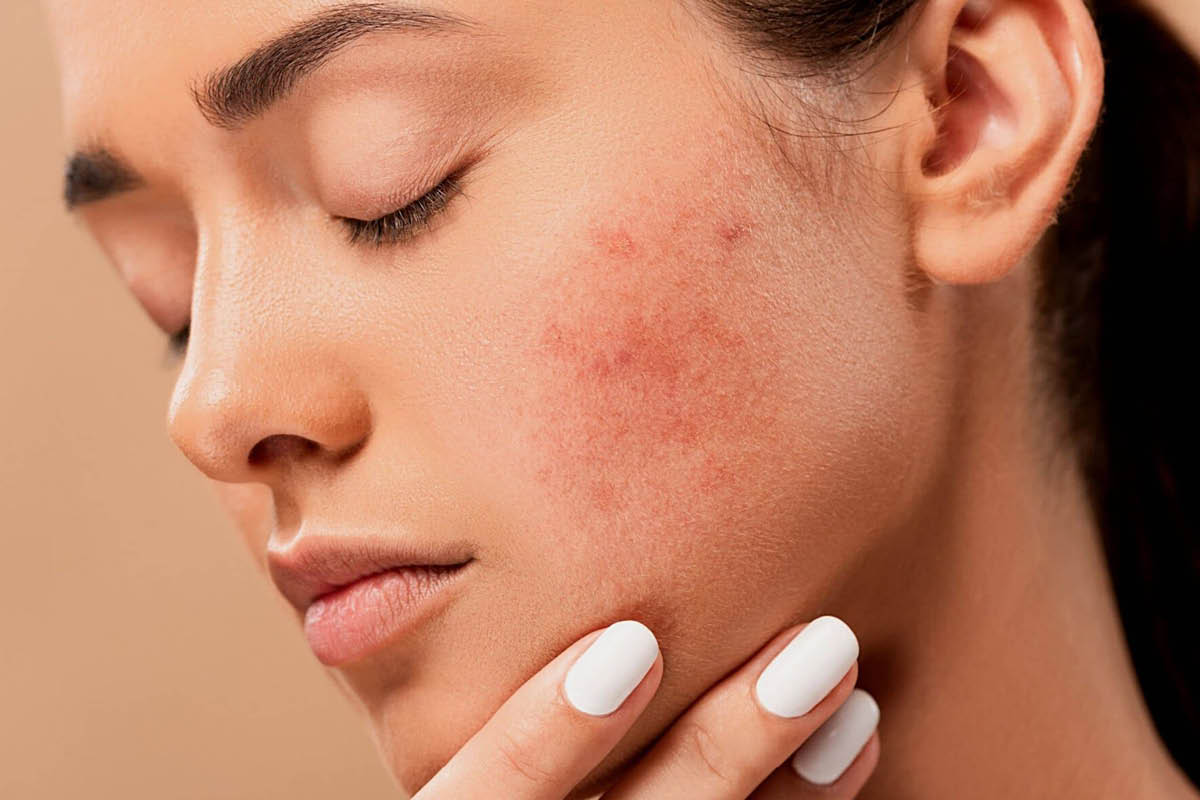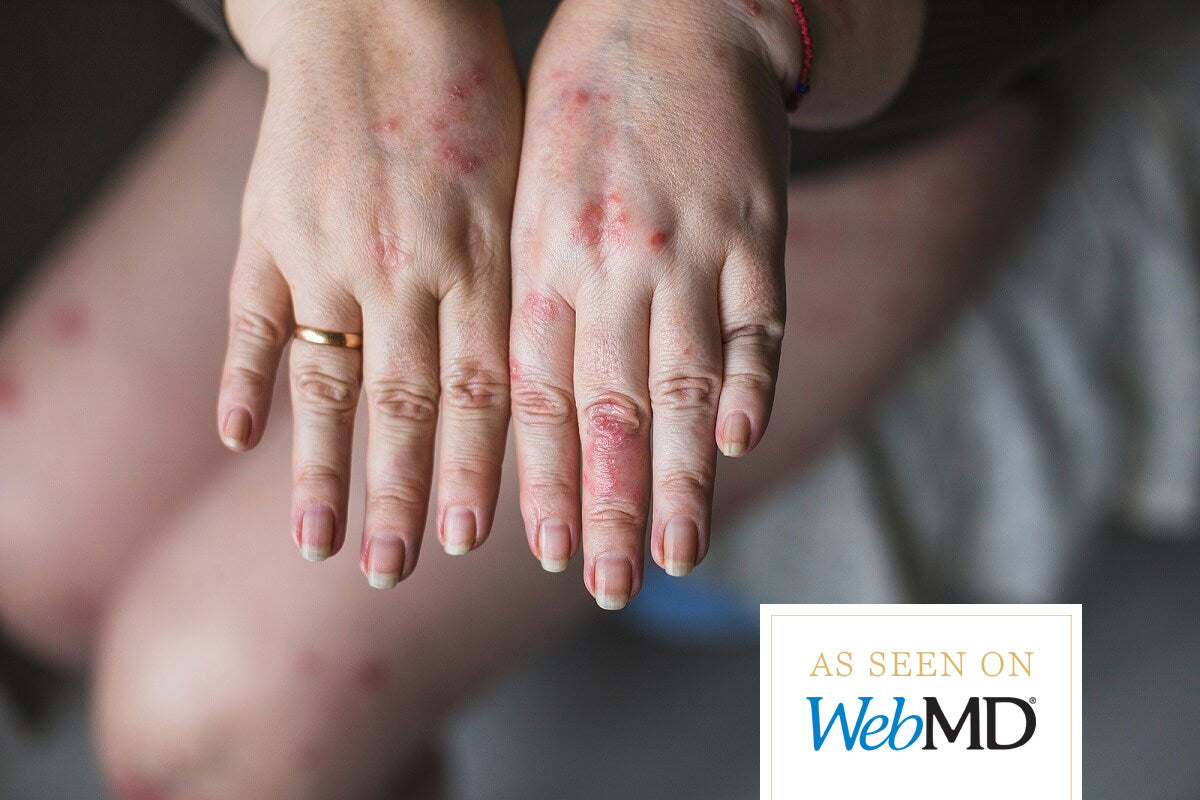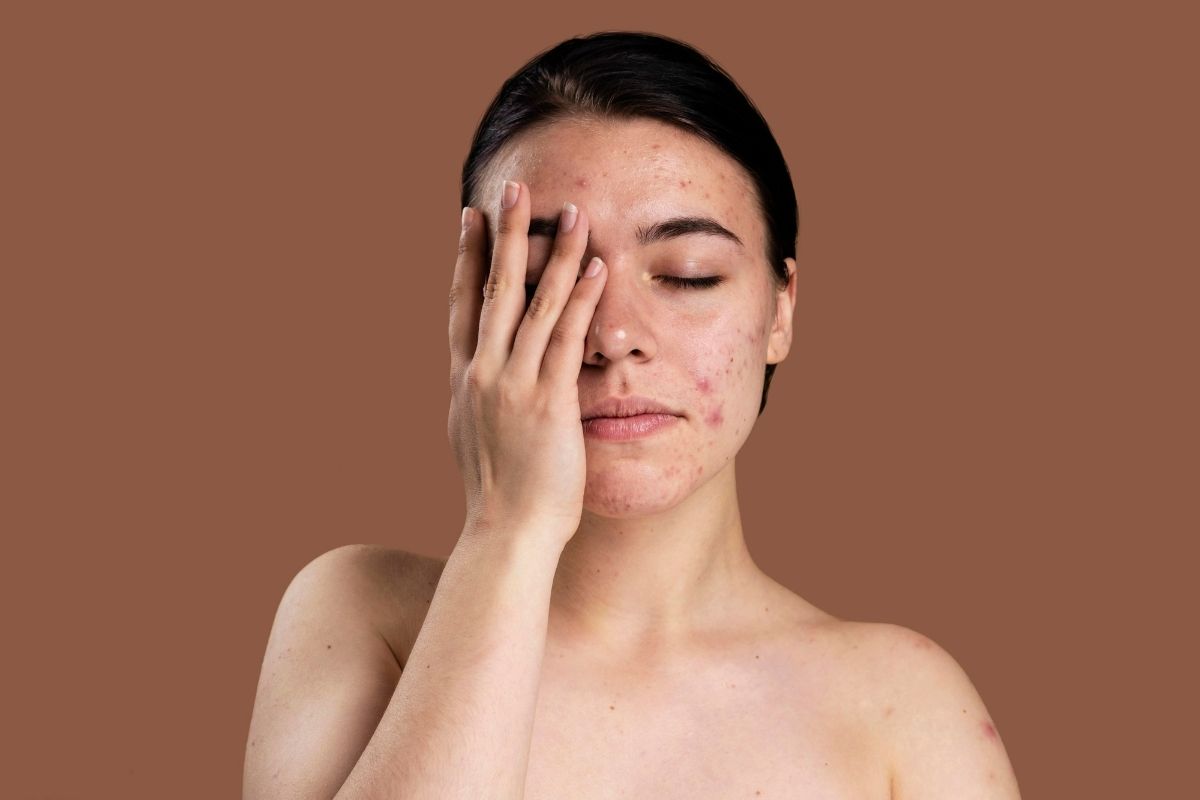Pigmentation is a common skin issue. It can vary from a small melasma to larger areas of the face, hands and other areas on the body.
Pigmentation is caused from cell damage leading to the excess production of melanin in the skin. This can be triggered by a range of issues such as the genetics, sun exposure, changing hormones, poor nutrition, unhealthy diet, stress, ageing, inflammation and trauma to the skin.
The biggest issue with effectively resolving pigmentation issues is the ongoing care required to stop the hyper-pigmentation from coming back. This is a very common skin concern where many really struggle to find a solution.
So how do we resolve this issue with pigmentation?
We suggest a 3 pronged approach – Nutrition, Wellness & Topical Care.
-
NUTRITION:
Dietary nutrients required to help with the prevention and management of pigmentation include:
- Essential Fatty Acids – are great to reduce inflammation in the skin. By reducing inflammation, there will be brighter looking skin and a beneficial effect on pigmentation. Foods with essential fatty acids include fish, avocado, nuts and seeds.
- Vitamin A – renews skin cells to repair and regenerate the skin. Plus as an anti-oxidant effect to address the impact stress has on the skin, mostly from free radical damage leading to pigmentation. Foods high in vitamin A include carrots, sweet potatoes, collard greens, spinach, broccoli, apricots and turnips.
- Vitamin C – skin rejuvenating, inhibit the production of tyrosinase leading to less melanine production, boost cell renewal, and defends the skin from oxidative stress. Foods such as oranges, berries, tomatoes, kiwi fruit, mandarins, broccoli – be mindful that the vitamin C is lost in 1 week of being picked so make sure you visit your farmer’s markets to get fresh vitamin C filled broccoli.
- Vitamin B12 – best sourced in food. With many people having the MTHFR mutant gene having synthetic B12 is not beneficial for their health. B12 regulates the amount of pigment in the skin.
When B12 is deficient, the skin is more prone to pigmentation. In addition, there would be a reduction in oxygen delivered to the skin, making B12 essential for skin health.
Now folate (also known as B9) is required for the absorption of B12 and directly assists in delivery RBC and oxygen to the skin.
- Foods high in B12 include: fish, meat, poultry and eggs
- Foods high in Folate include: dark green leaky vegetables, beans, peanuts, sunflower seeds, whole grains and seafood
- Vitamin E – hydrates the skin, protects the skin from sun damage and is known to have a natural skin brightening effect on the skin – broccoli, avocado, nuts, green tea, seeds, green leafy vegetables
- Anti-oxidant foods – essential to fight free radical damage which can contribute to pigmentation issues. Foods high in antioxidants include berries, artichoke, kidney beans.
- Zinc – reduces inflammation and rejuvenates the skin so to help with the management of pigmentation – chick peas, almonds, spinach, avocado, shellfish, legumes, seeds
- Loads of filtered water to keep the skin hydrated. Coconut water is another great option for hydration as there are natural minerals and vitamins to actively improve the hydration of the body.
Avoid inflammatory foods as inflammation is another trigger to increase pigmentation. These include sugar, dairy, gluten, alcohol and greasy fatty foods.
2. WELLNESS:
Is essential to all aspects when it comes to caring for our skin; a healthy body leads to healthy looking skin. So if there are any health concerns you have, visit a health practitioner to resolve them. A common cause of hyper-pigmentation is hormonal imbalance, inflammation in the skin such as psoriasis and acne and poor gut health. Restoring wellness will help you most effectively address these skin issues from the inside out.
3. TOPICAL SKIN NUTRIENTS:
To help reduce melasma and other pigmentation concerns act to reduce the production and deposition of melanin in the skin. Typically, it can brighten the skin overall so applying these products all over the skin is not a bad idea, especially for your clients who are looking for a brighter complexion.
Let’s break down the key aspects to Salubre’s skin brightening formulation:
There are 3 key areas we are focused on with this formulation.
- Slow down melanin production by interfering with the production in the melanocytes. More specifically they act as tyrosinase inhibitors. Tyrosinase is an enzyme required for the production of melanin in the skin.
- Rejuvenate the skin with high amounts of antioxidants to naturally brighten the complexion and even the skin tone, while initiating an anti-ageing effect on the skin.
- Gently exfoliate the skin cells on the surface to remove the superficial melanin resulting in lighter looking skin.
While addressing the skin topically, we encourage dietary and lifestyle changes to assist in the management of pigmentation issues.
BONUS TIP:
Lifestyle factors need to be addressed so that the underlying cause of the problem is dealt with.
- Sunscreen, hat, gloves (for age spots) – especially when out walking , driving and sitting in the sun
- Resolve any hormonal imbalances with recommending clients to see a natural health practitioner.
- If stress is a factor – then the increase in cortisol can upset hormonal regulation and lead to pigmentation issues. Encouraging meditation, qi gong, yoga or another calming technique is essential for the health of the skin.
- If acne is a cause for the pigmentation, then the first and most important step would be to resolve acne. Be sure to see our acne range flawless on great natural products to encourage the skin's natural healing process to rejuvenate and revitalise.

About the Author
Dr. Prantalos (chinese medicine) has dedicated her life to skin health after suffering from debilitating psoriasis for most of her childhood and young adult life. She helps hundreds of people to manage their skin issues at her practice and skin clinic in Surrey Hills, Victoria and online at https://salubre.com.au/







